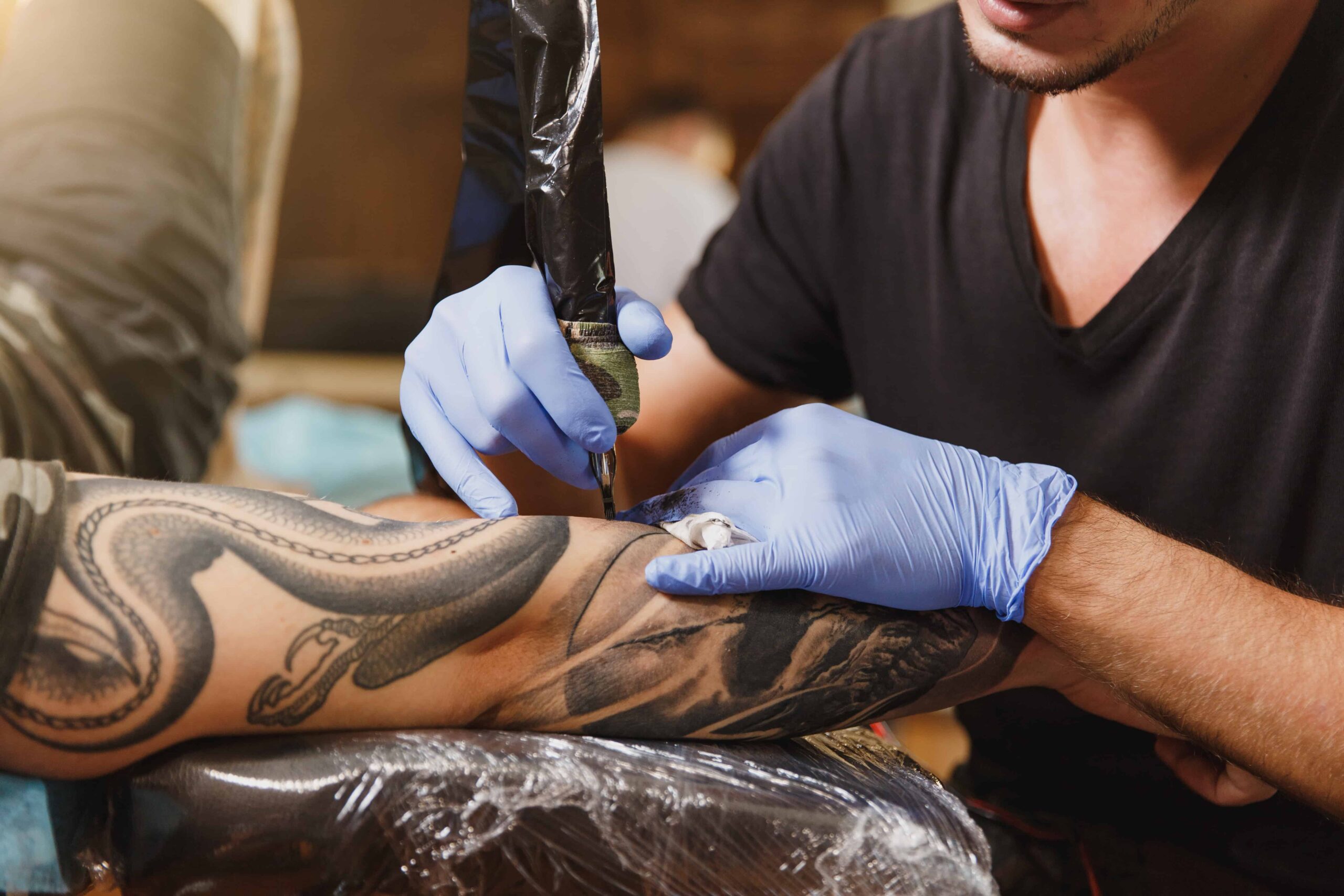Charles Darwin wrote, “No country in the world that did not practice tattooing or some other form of permanent body decoration.”
Tattooing has become more popular, with a Pew Research Center survey reporting that 40% of young adults have at least one. Tattoos appeal to their customized art, which reflects individual personalities or honors others. While each individual has reasons for getting a tattoo, the question arises about its safety.
Truthfully, they are much safer than decades past. The tattooing process involves the artist using a needle that injures the skin while inserting small amounts of color pigments. So if the wound heals properly, the result is a beautiful and permanent skin art.

It is possible, however, that tattoos can lead to several risks, including allergic reactions, scarring, and skin infections. These risks can increase if the wound has healed improperly. Aside from the risks, is there any correlation between skin cancer and tattoo ink? The key to tattoo safety is ensuring the tattoo heals appropriately and using a safe and reputable tattoo artist.
So is there a correlation between tattoos and skin cancer? This has been a question that researchers have been exploring for years. While there is no direct correlation between tattoos and skin cancer, some ingredients found in the tattoo may be linked to cancer.
An article from The National Library of Medicine states that black tattoo ink can be dangerous. The ink contains a high level of benso(a)pyrene, which is listed as a carcinogen by the International Agency for Research on Cancer (IARC).

A change in skin pigmentation is one of the earliest signs of skin cancer. The cause of concern is when the body is “blacked out” with tattoo ink, individuals may not be able to notice these changes right away. For this reason, tattoos should never be placed over pre-existing moles, birthmarks, or other skin discolorations or abnormalities.
